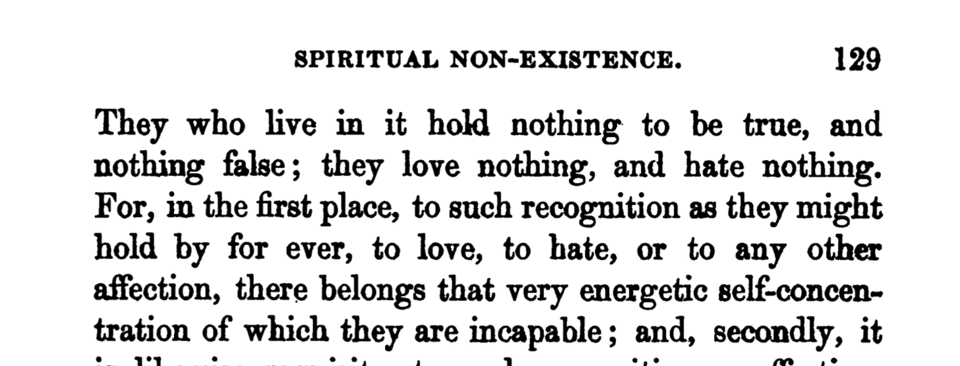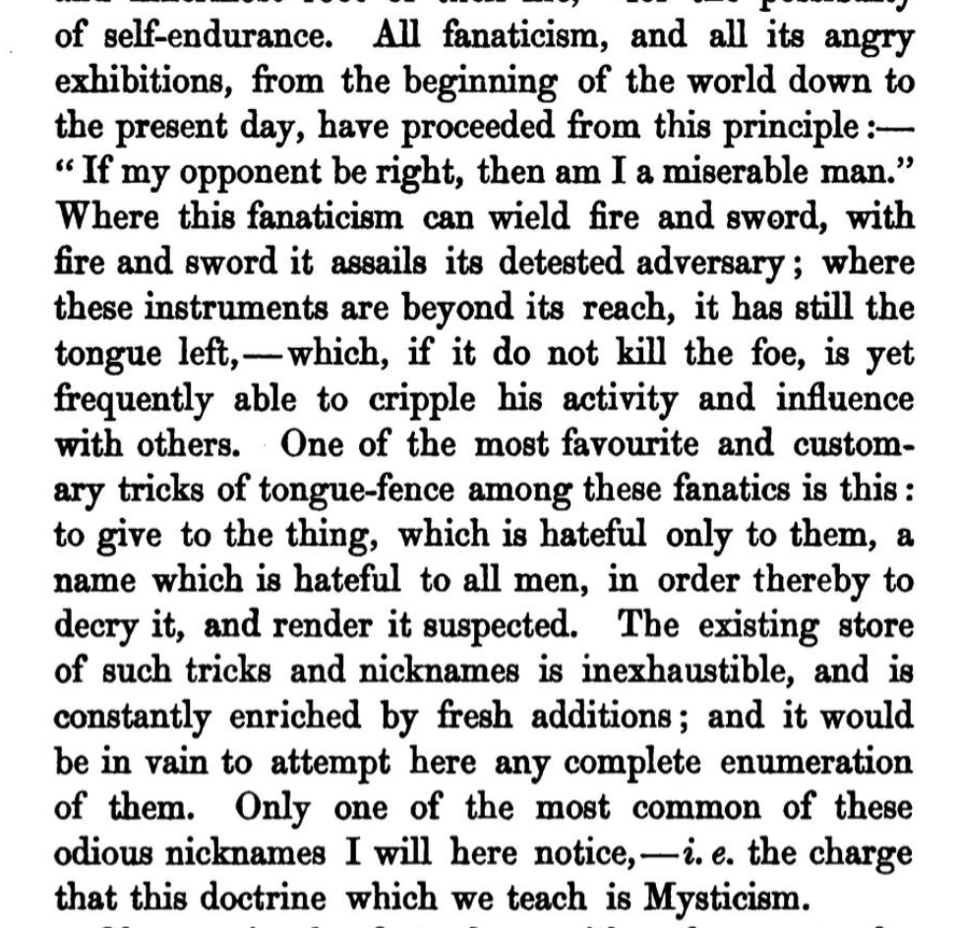What Distraction Is

Lately I've been reading, distractedly, Fichte's 1806 lectures on religion, translated in 1849 as as The Way Towards the Blessed Life [Die Anweisung zum seligen Leben oder auch die Religionslehre]. It's sort of sad that this stuff hasn't made it into the the F translation renaissance of the last decade or two (RIP Daniel Breazeale), which for obvious reasons has focused on his more philosophically respectable early work or on his politics (which are a bit scary), rather than these lectures which are usually considered to be mysticism and an exercise in late style, to have the McGuffin embarrassingly in hand—this might be easier in the dark. In many ways these lectures seem like a victory lap for F, he's content to shorthand his typical developments, the constant setting-up of the Wissenschaftlehre (but what is that?), the hyper-idealist Parmenidean fireworks, the comic way of using "for example" to introduce a description which is even more ridiculously abstract than the one preceding, the pejorative tendency—that those who oppose our doctrine do so not because of what they believe but because of what they are:

Perhaps I'm not understanding him so well, this is the view from below, grasping at the superficial aspects of the doctrine. And I am after all someone who is more often than not non-existent in just the way he criticizes below. Yet he writes for me as well, which is to say, psychologically. Here he is talking about distraction, dissipation, spiritual non-entity, diffusion. This seems to be a through-line in his ethics, that the source of error is not willing the wrong things, but willing incoherently or not at all. Not drawing the wrong conclusions from concepts, but failing to form them.
Clearness is always increased by contrast. Since we are minded to comprehend thoroughly the True and Bliss-giving mode of Thought, and to depict it to the life, it will be well to characterize, more profoundly and distinctly than we were able to do in our first lecture, in which however we did certainly describe it, that superficial and unblessed mode of Existence which is directly opposed to the former, and which we, in common with Christianity, name a Non-Existence, Death and Burial of a living body. We have formerly characterized this false mode of Thought, in opposition to the true, as vagrancy in the Manifold, contrasted with retirement and concentration in the One; and this is, and remains, its essential characteristic. But instead of directing our attention, as we did formerly, more to the manifold outward objects among which it is dissipated, let us now consider, without any reference whatever to the object, how this mode of Thought is in itself an open, shallow superficiality,—a broken fountain whose waters run waste on all sides.
All inward spiritual energy appears, in immediate Consciousness, as a concentration, comprehension, and contraction of the otherwise distracted spirit into one point, and as a persistence in this one point, in opposition to the constant natural effort to throw off this concentration, and to become once more diffused abroad. Thus, I say, does all inward energy appear; and it is only in this concentration that man is independent, and feels himself to be independent. Beyond this condition of self-contraction, he is dispersed and melted away as before; and that not according to his own will and purpose, for any such effort is the opposite of dispersion—concentration, but just as he is moulded and formed by lawless and incomprehensible chance. In this latter condition, therefore, he has no independence whatever; he exists, not as a substantial reality, but as a fugitive phenomenon of Nature. nI short, the original image of spiritual independence, in Consciousness, is an ever self-forming and vitally persistent geometric point; just as the original image of dependence and of spiritual nonentity is an indefinitely outspreading surface. Independence draws the world into an apex; dependence spreads it out into a flat extended plain.
—from The Way Toward the Blessed Life, Lecture VII
So for F, practical failure is the mask of or even identical to ontological failure. Is he underestimating the resources of non-conceptual experience here? What exactly is he leaving out of the picture, or is the problem that I say "exactly?" In any case, the antagonism clarifies. Try talking this kinda stuff at the Zendo, they might hit you with the stick—might send you back round to the willow tree... That's another way to tighten up.
Have any of you read this material before? Send me an email. I realize I'm coming at things a bit backwards, and soon I'll try to read the less mystical work in less Victorian translations. Wishing that I could take a proper course in this stuff, or even just duolingo for idealism. I need it for the book!
Oh, also, I'm coming back to New York next week. I want to try making music with people a little more, having more of you over for dinner, and a bit more that it's maybe better not to mention until I've got further with the plan. In the meantime please fix the weather and make Eric Adams shut up. Bye for now,
Jackie